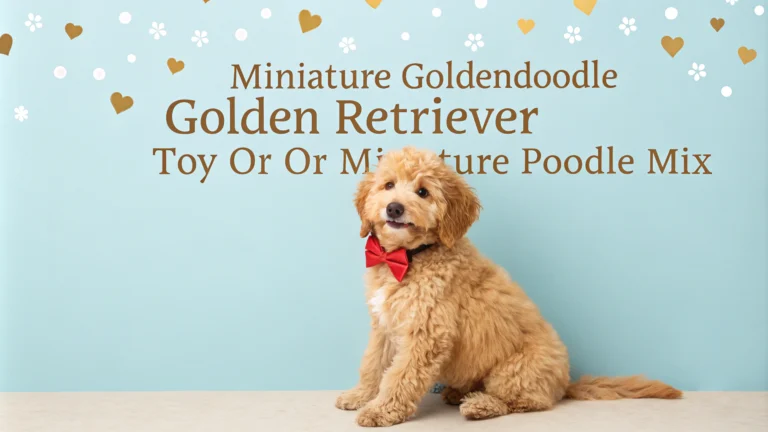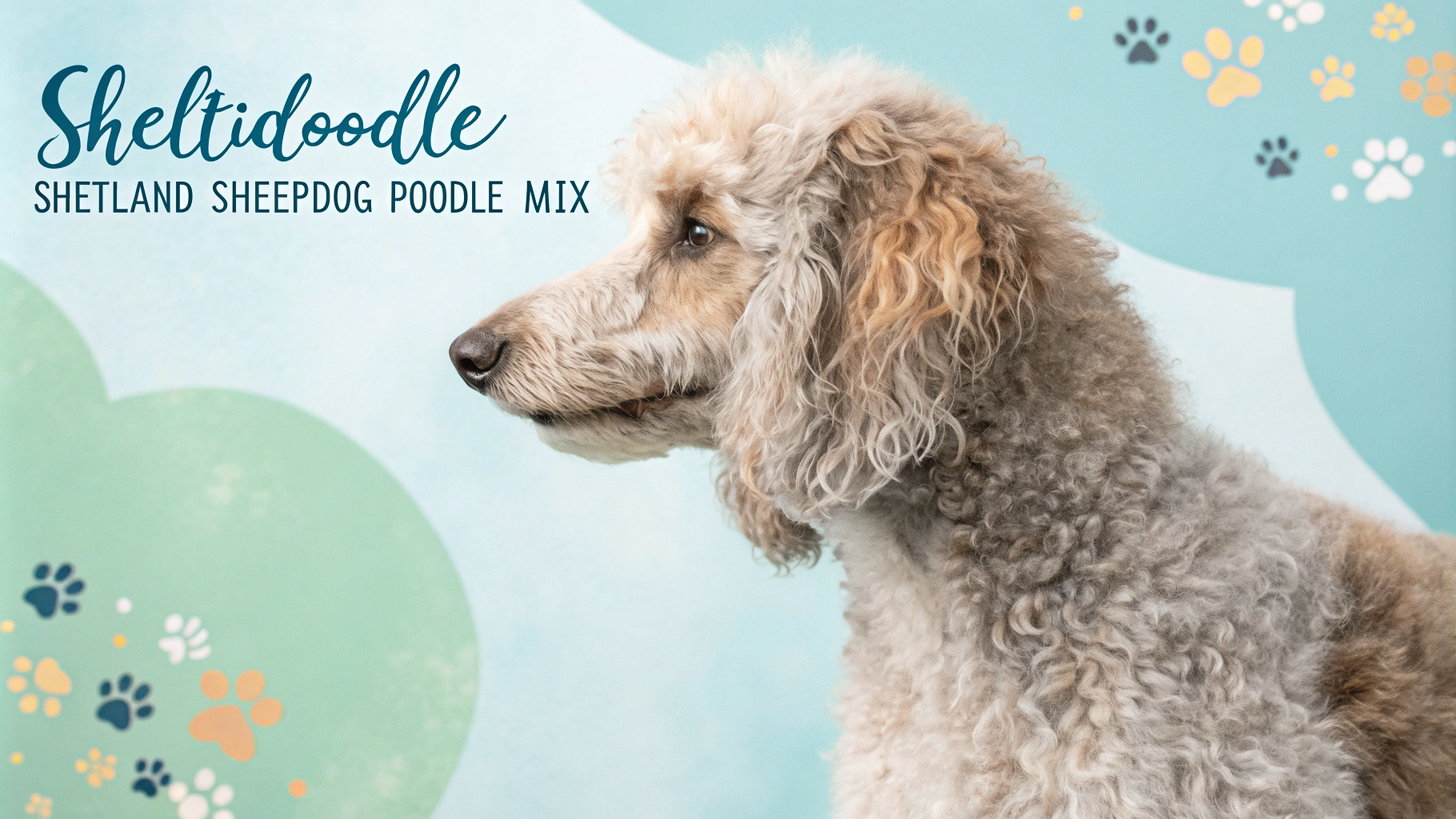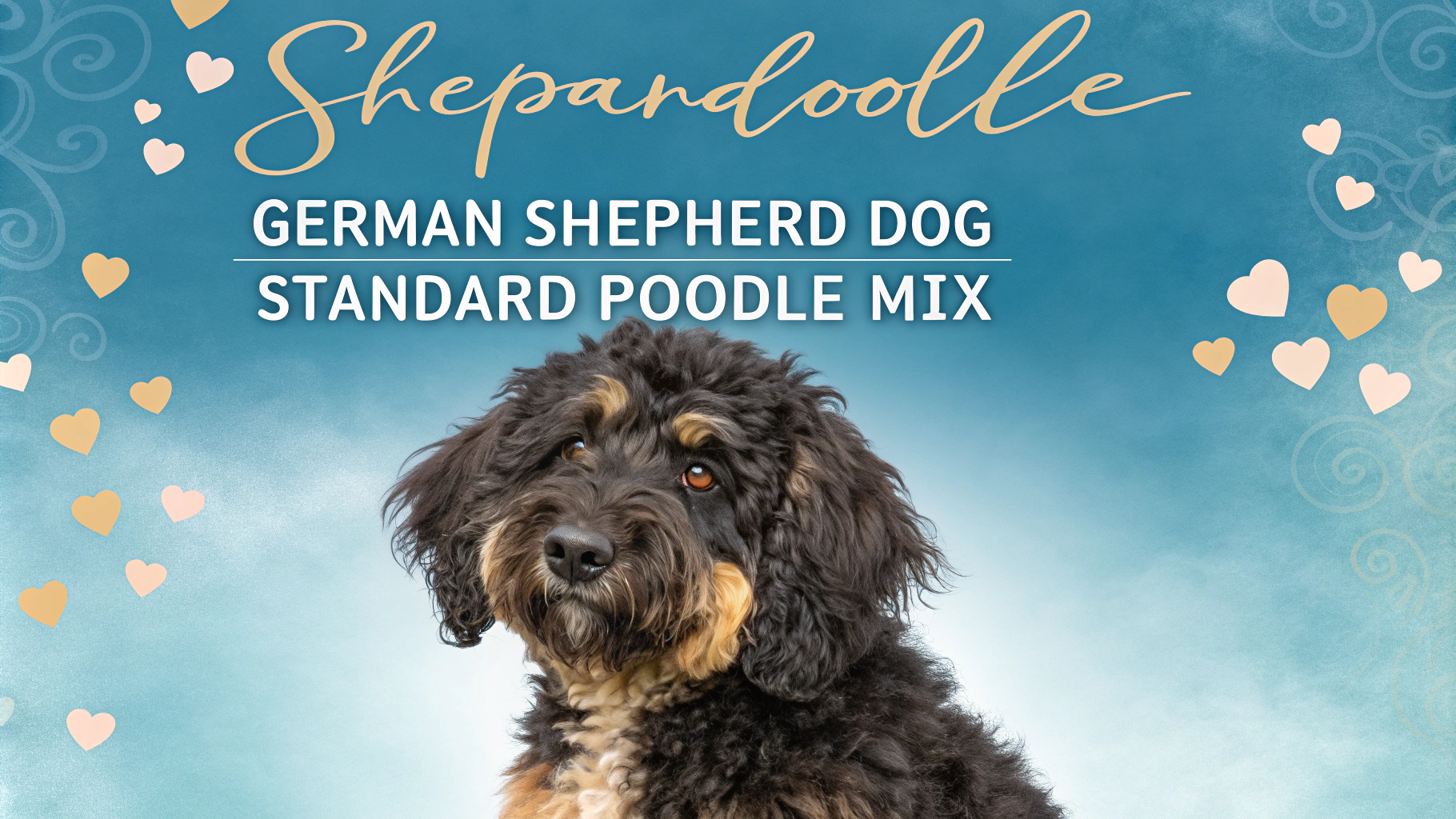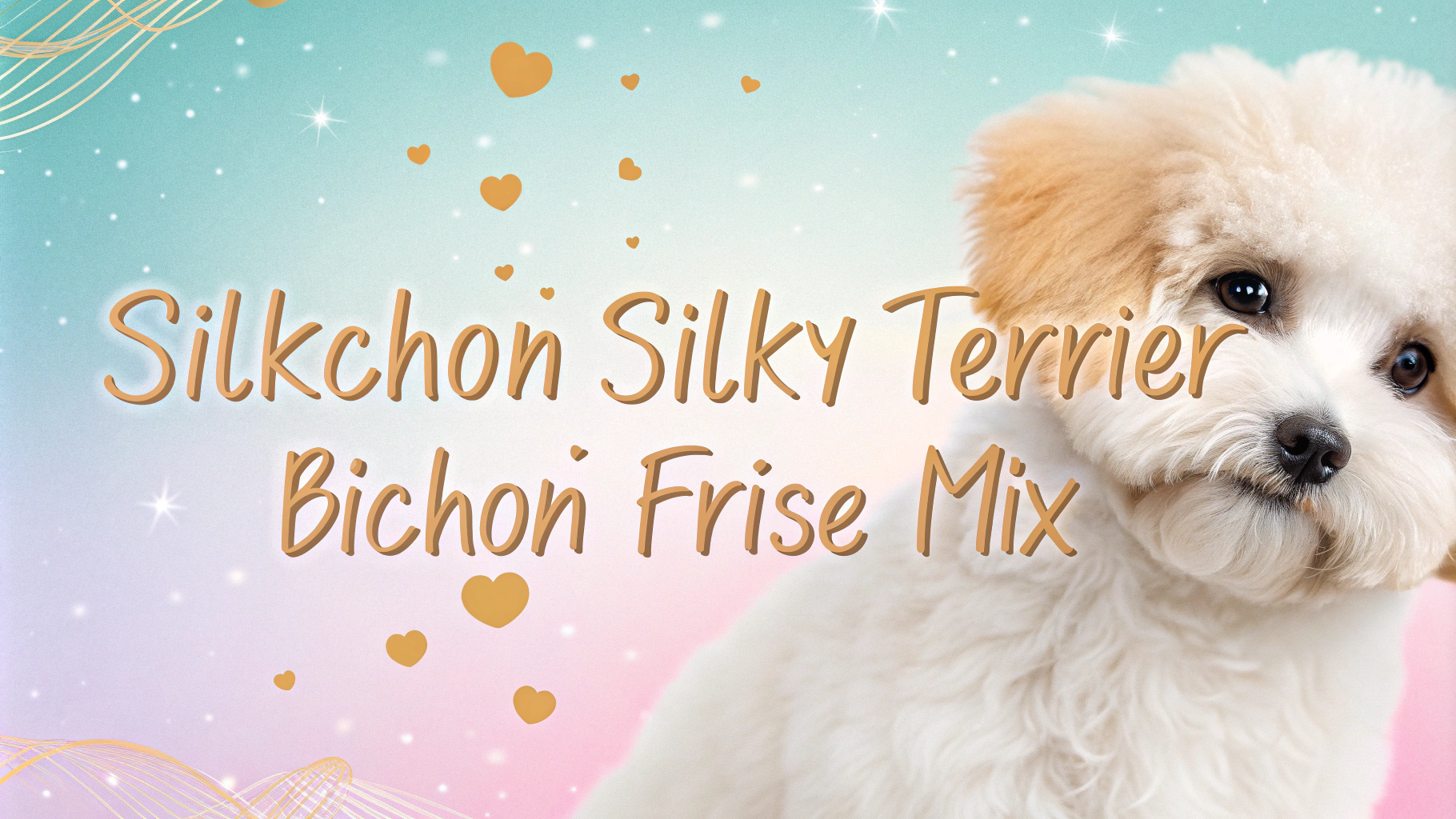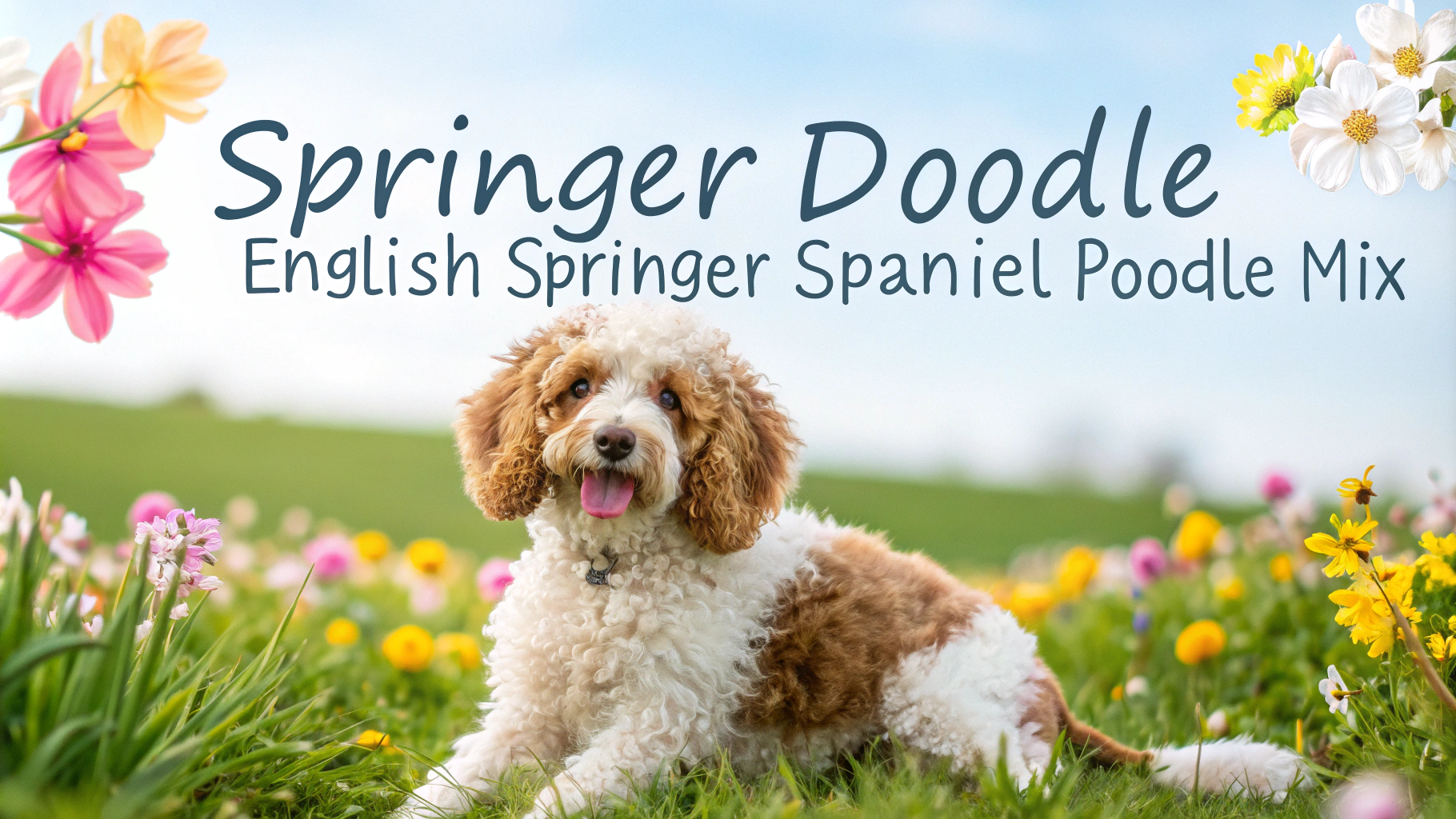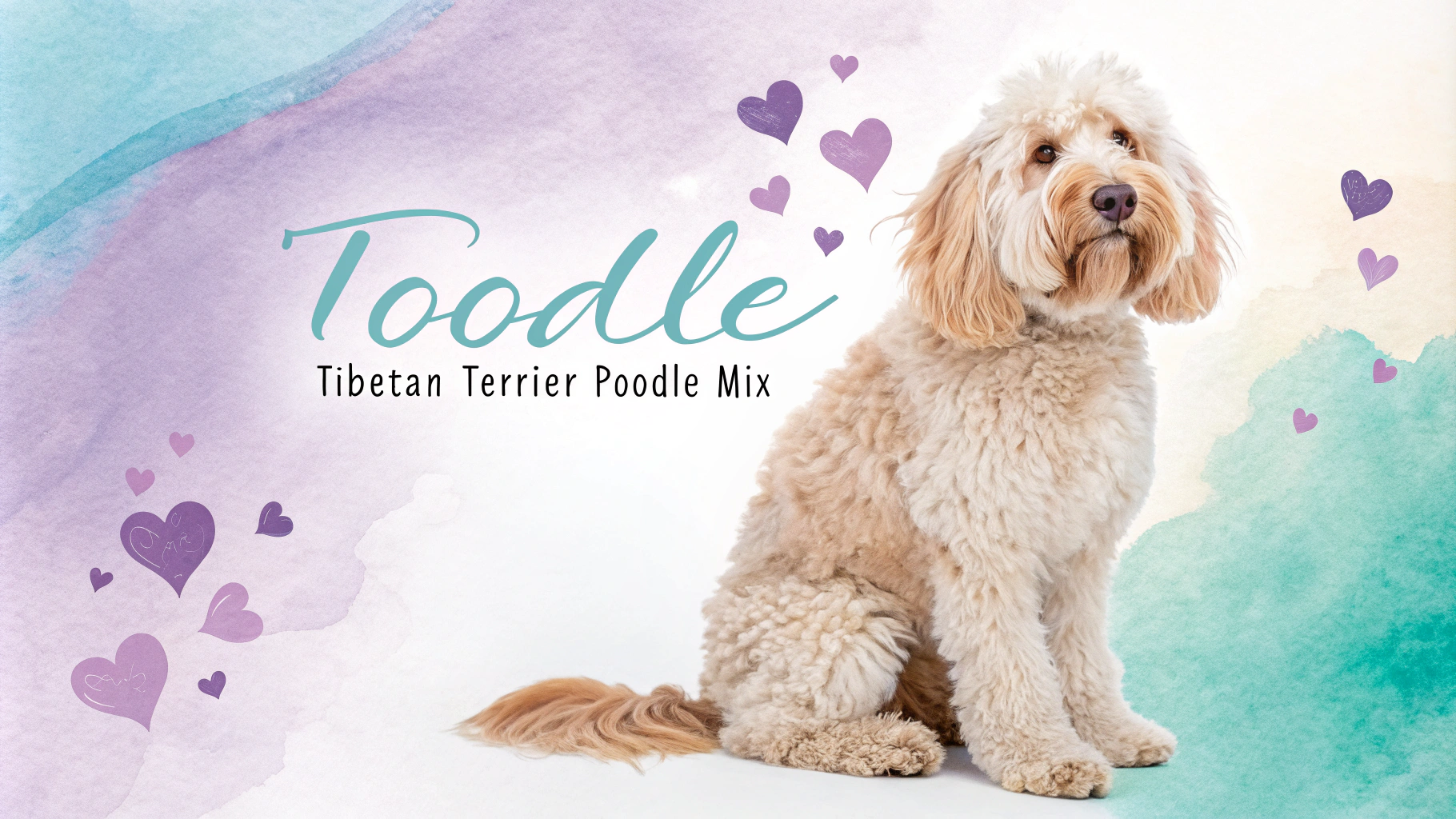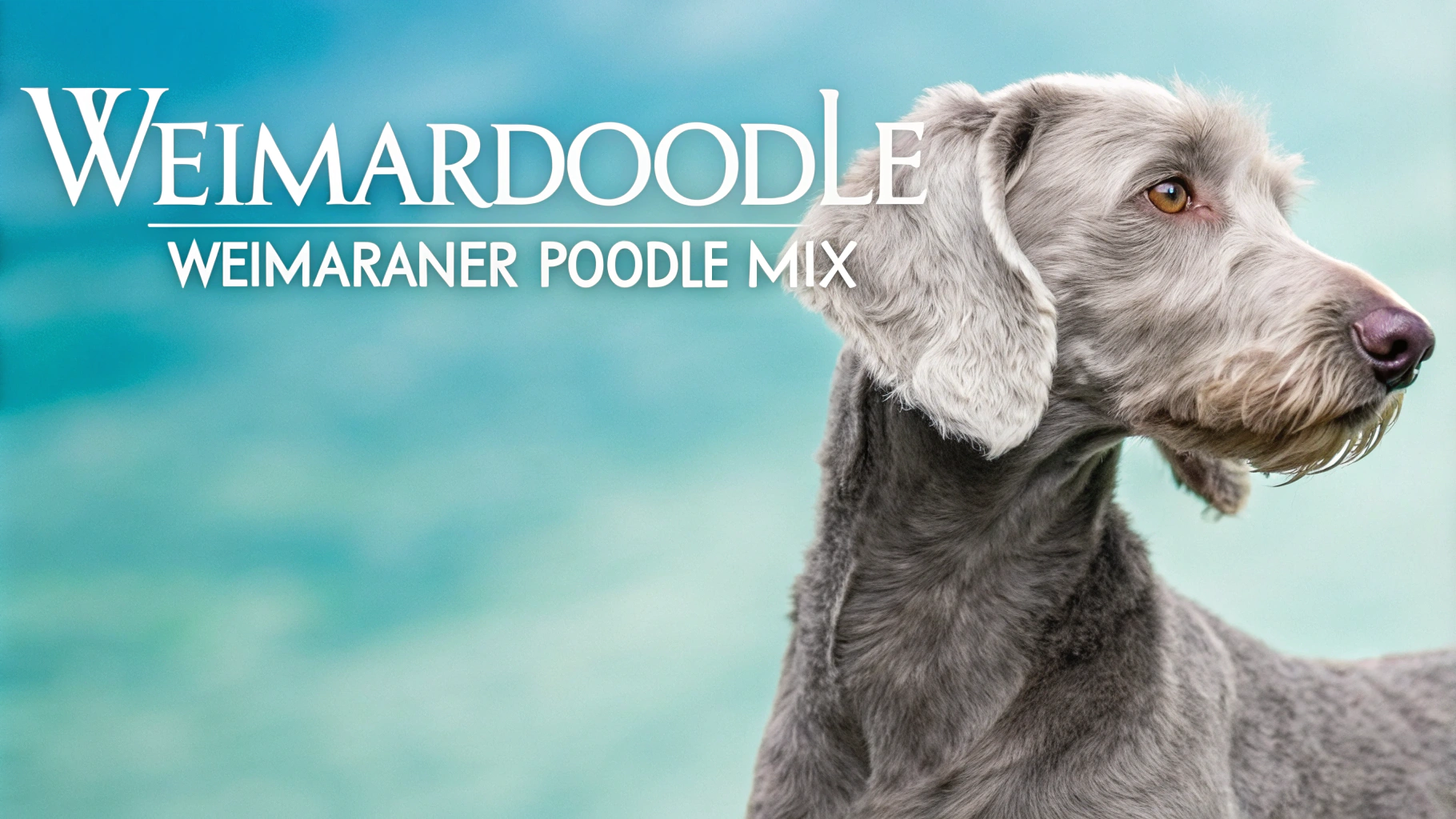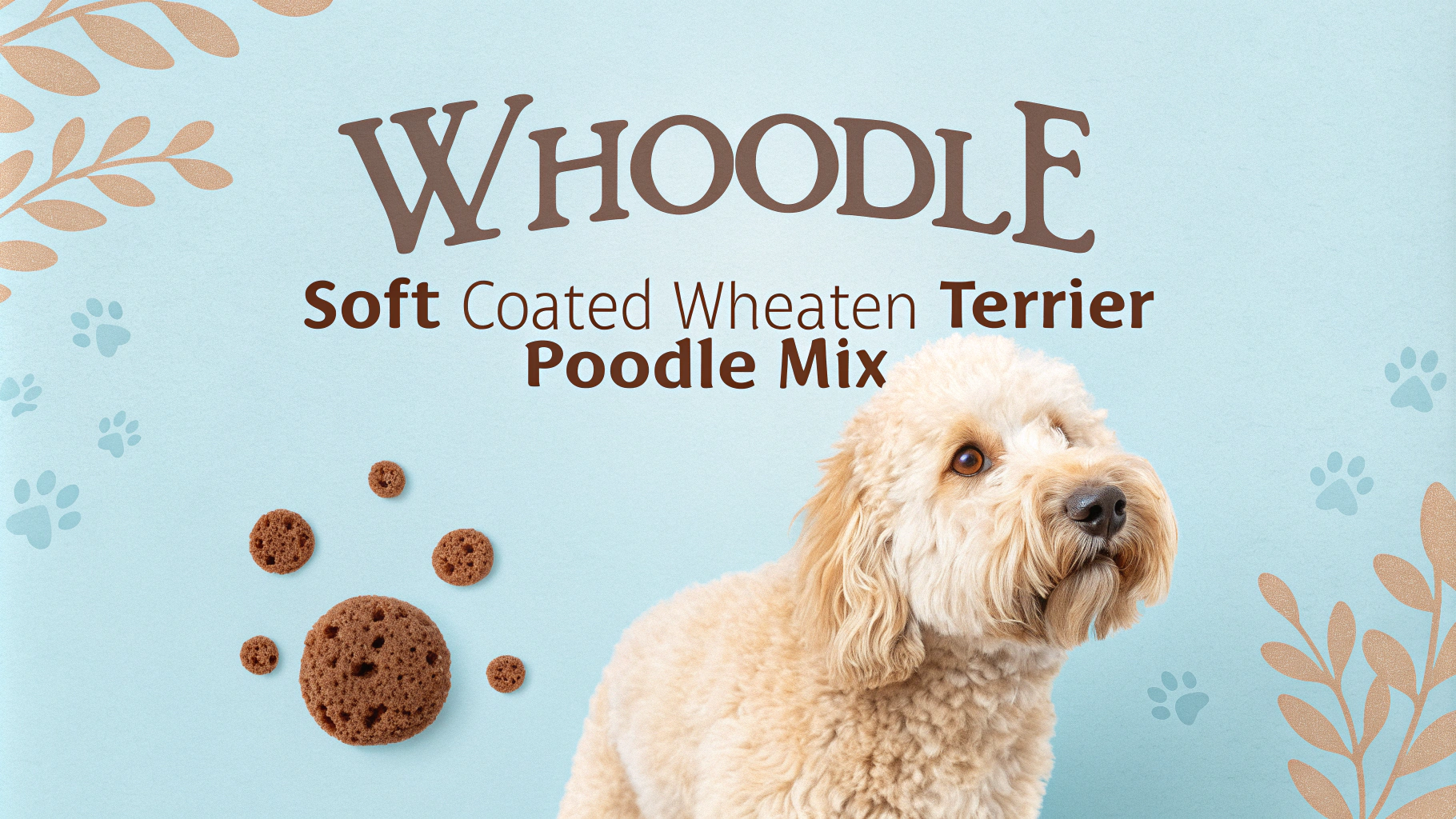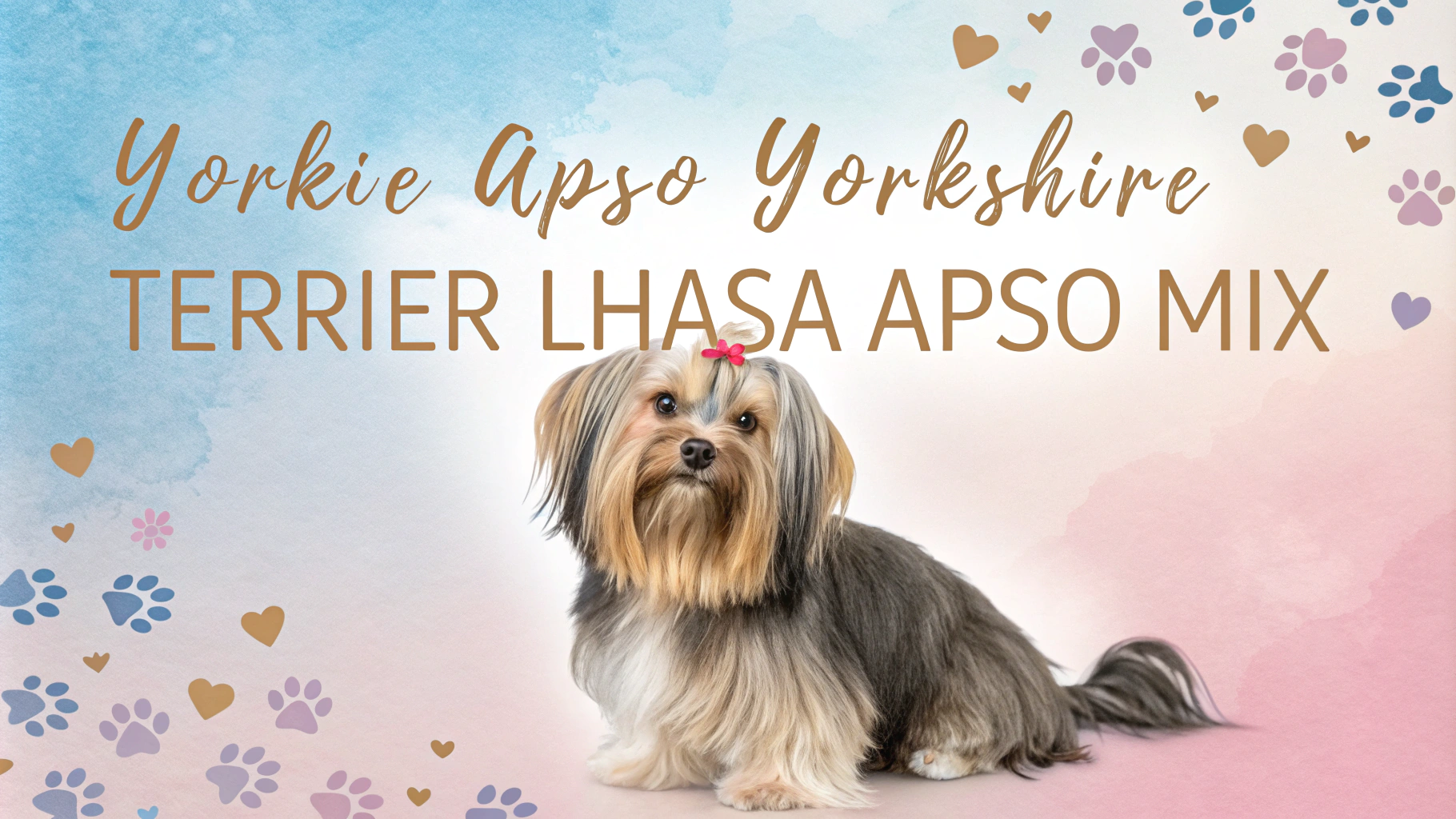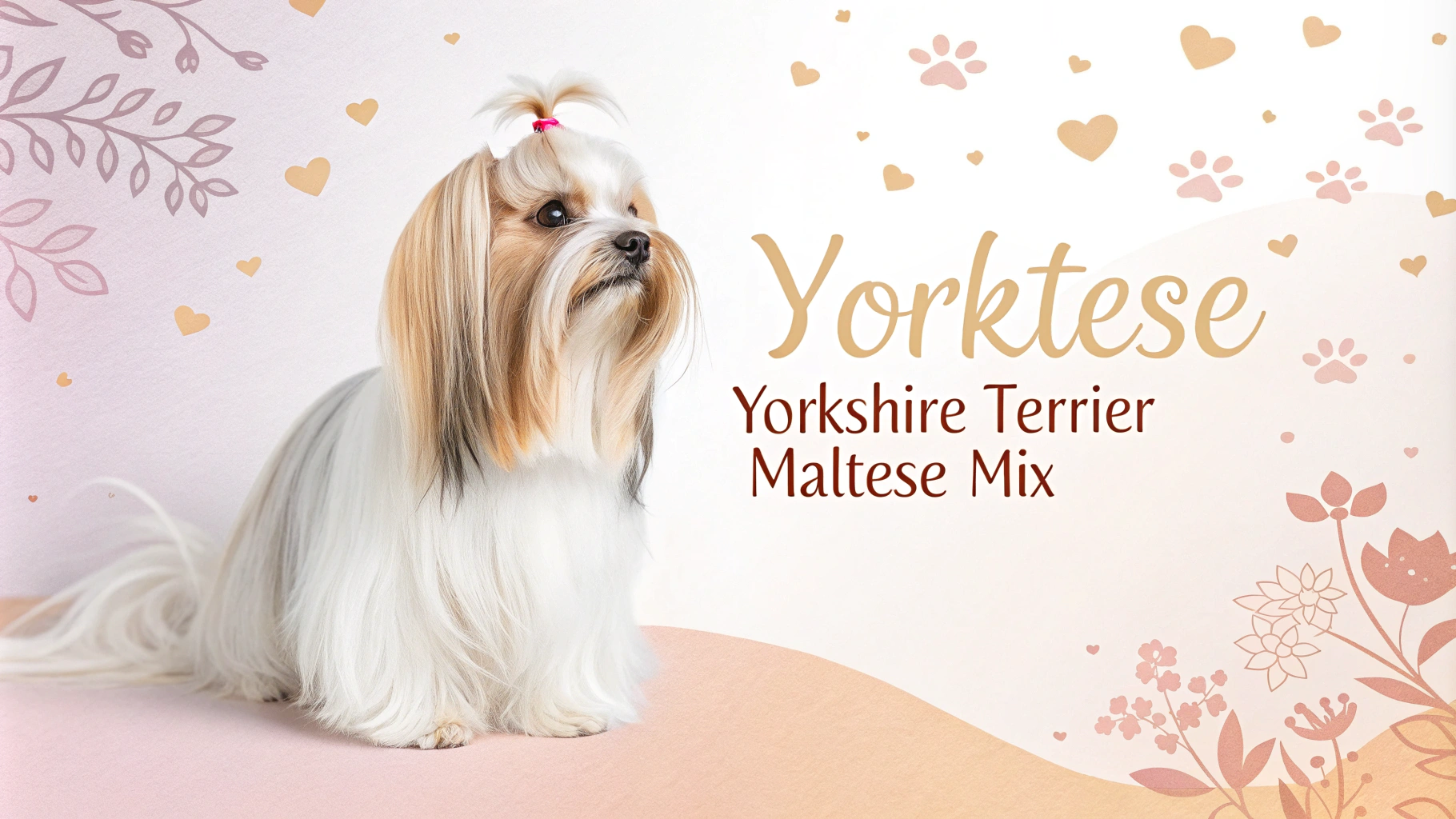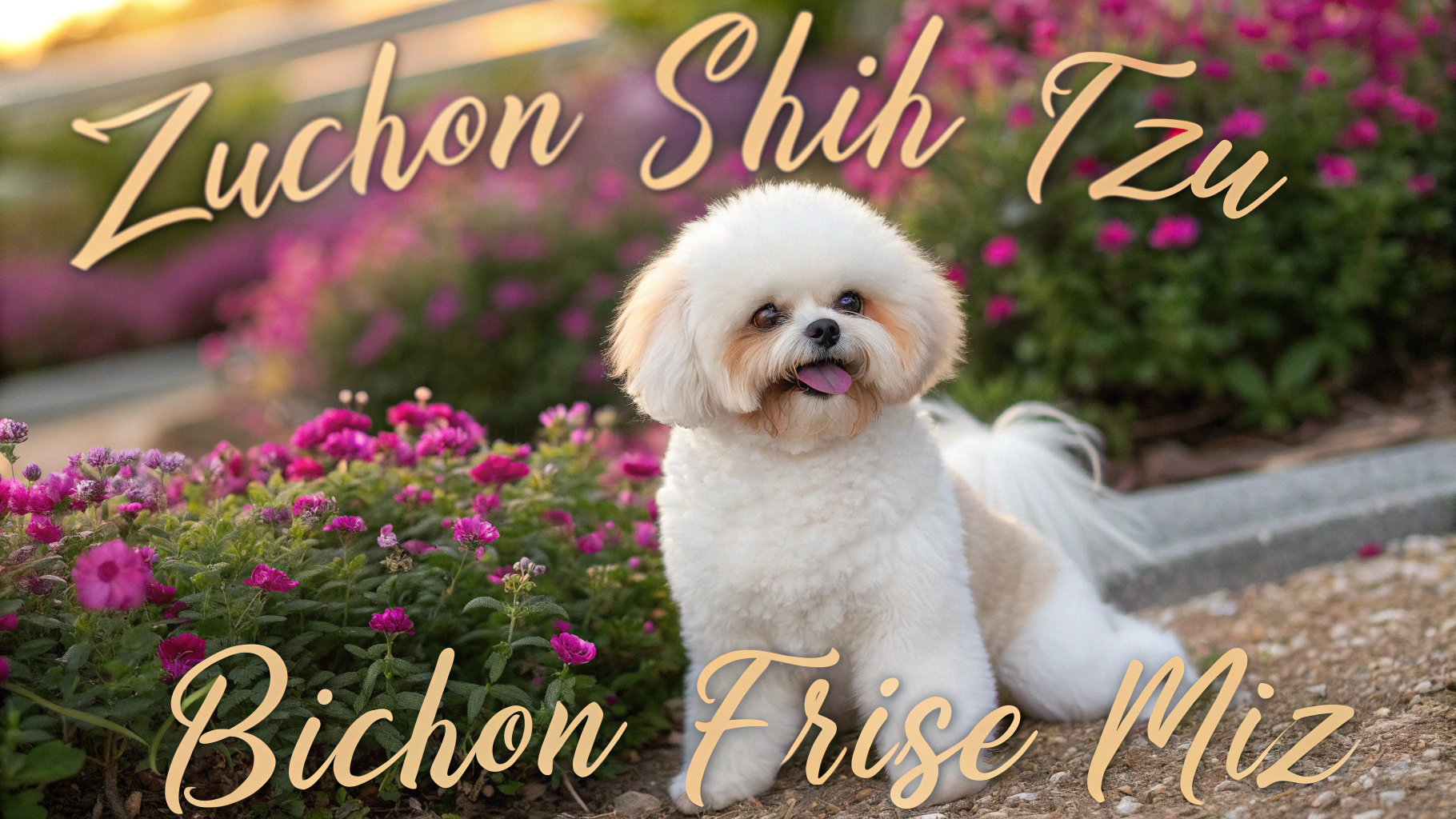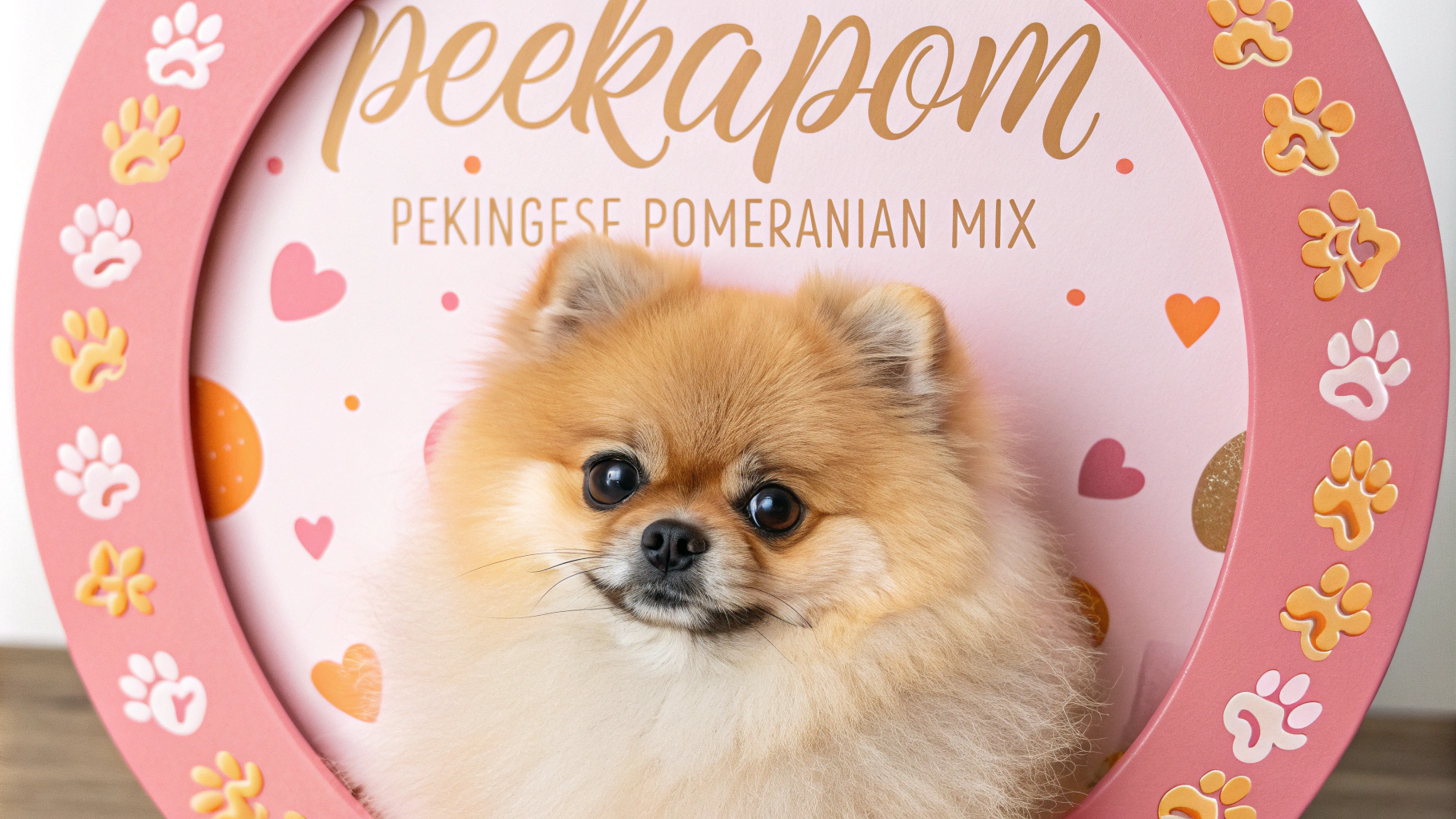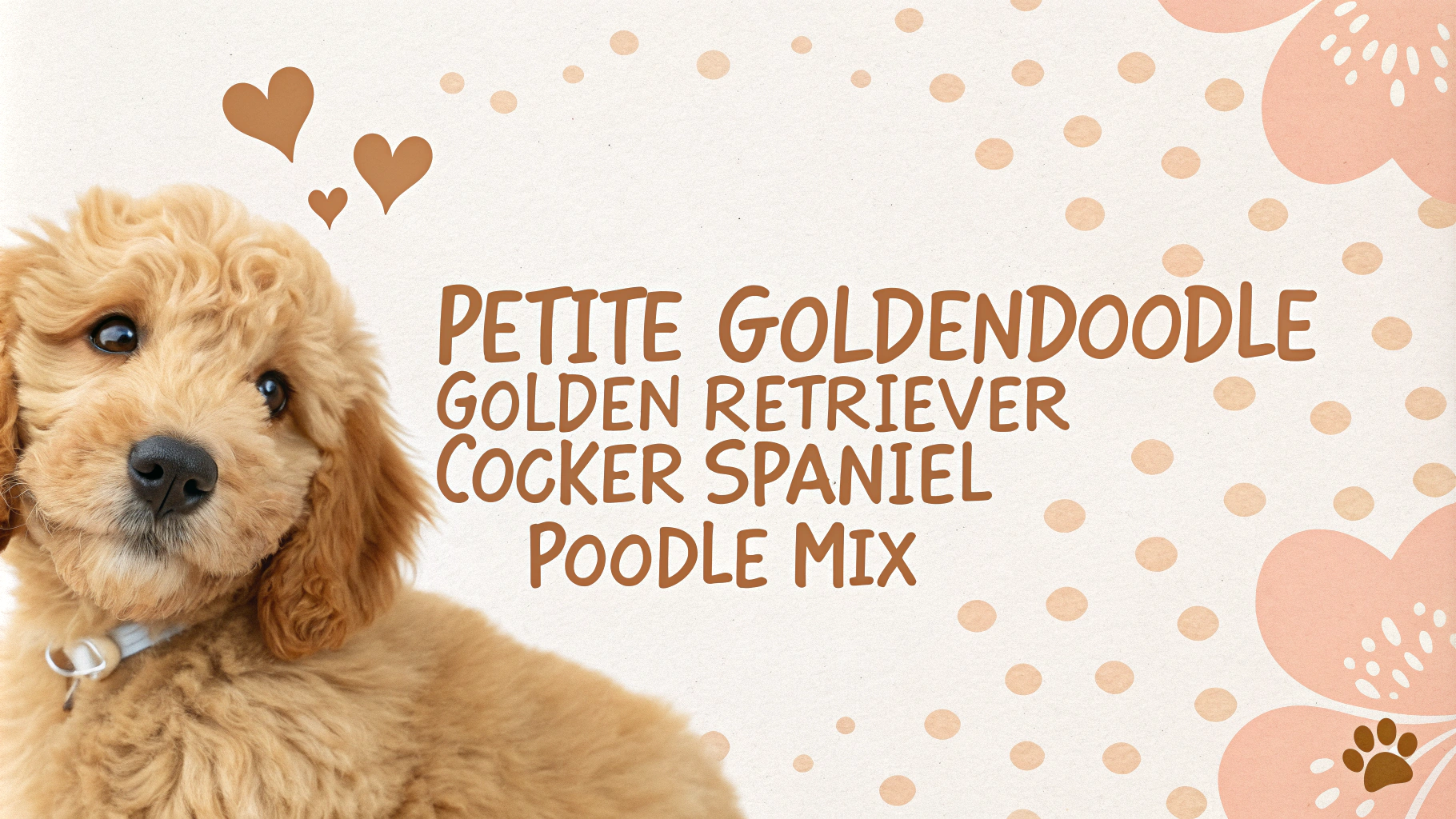The Miniature Goldendoodle is a designer dog breed that combines the Golden Retriever with either a Toy or Miniature Poodle. This crossbreed aims to blend the friendly, outgoing nature of the Golden Retriever with the intelligence and low-shedding coat of the Poodle. Miniature Goldendoodles are smaller than standard Goldendoodles, making them suitable for various living situations while still maintaining the beloved characteristics of both parent breeds.
Key Facts
- Size: 13-20 inches tall at the shoulder
- Weight: 15-35 pounds
- Lifespan: 10-15 years
- Coat: Wavy to curly, low to moderate shedding
- Colors: Gold, cream, apricot, red, chocolate, black, or parti-color
- Temperament: Friendly, intelligent, and affectionate
- Exercise needs: Moderate
- Grooming: Regular brushing and professional grooming recommended
Character Traits
Miniature Goldendoodles are known for their friendly and affectionate personalities, inheriting the best traits from both parent breeds. They are typically:
- Intelligent: Quick learners with a keen ability to understand commands
- Social: Enjoy the company of humans and other pets
- Playful: Energetic and fun-loving, especially with children
- Gentle: Known for their soft and patient demeanor
- Adaptable: Can adjust well to various living environments
Their well-rounded temperament makes them excellent family dogs and suitable companions for first-time dog owners. However, they can develop separation anxiety if left alone for long periods, as they thrive on human interaction.
History & Origins
The Miniature Goldendoodle is a relatively new designer breed, first appearing in the 1990s following the popularity of the standard Goldendoodle. Breeders aimed to create a smaller version of the Goldendoodle that would be more suitable for apartment living and families desiring a compact companion. The breed was developed by crossing Golden Retrievers with Toy or Miniature Poodles, rather than Standard Poodles used for the original Goldendoodle. This intentional crossbreeding sought to combine the Golden Retriever’s friendly nature and the Poodle’s intelligence and hypoallergenic coat. While not recognized by major kennel clubs as a purebred, Miniature Goldendoodles have gained popularity for their adorable appearance, friendly temperament, and potential for reduced shedding.
Health Concerns
Miniature Goldendoodles generally inherit good health from their parent breeds, but they can still be prone to certain conditions. Common health issues include:
- Hip dysplasia: An inherited condition affecting the hip joint
- Progressive Retinal Atrophy (PRA): A group of genetic eye disorders that can lead to blindness
- Ear infections: Due to their floppy ears and potential for hair growth in the ear canal
- Allergies: Both environmental and food-related
- Patellar luxation: A condition where the kneecap dislocates
Regular veterinary check-ups, genetic testing, and proper care can help mitigate these health risks. It’s crucial to obtain puppies from reputable breeders who conduct health screenings on parent dogs.
Exercise Needs
Miniature Goldendoodles are energetic dogs that require regular exercise to maintain their physical and mental well-being. They typically need about 30-60 minutes of daily exercise, which can be divided into multiple sessions. Suitable activities include:
- Brisk walks or jogs
- Fetch and other interactive games
- Swimming (if they inherit the Golden Retriever’s love for water)
- Agility training
- Mental stimulation through puzzle toys and training sessions
These dogs also enjoy playtime in a securely fenced yard. However, exercise should be moderated for puppies to protect their developing joints. As they age, exercise routines may need to be adjusted to accommodate their changing needs.
Space Requirements
Miniature Goldendoodles are adaptable and can thrive in various living situations, making them suitable for both apartments and houses. However, they do best with some outdoor space. Key space considerations include:
- Indoor space: A small to medium-sized living area is sufficient, provided they receive adequate exercise
- Outdoor access: A fenced yard is ideal but not necessary if daily walks and outings are provided
- Play area: Space for interactive games and training sessions
- Sleeping area: A comfortable, quiet spot for rest and relaxation
While they can adapt to apartment living, they may be more content in homes with yards. Regardless of the living situation, ensuring they receive proper exercise and mental stimulation is crucial for their well-being.
Nutrition & Feeding
Proper nutrition is essential for the health and longevity of Miniature Goldendoodles. Their diet should be tailored to their age, size, activity level, and any specific health concerns. General feeding guidelines include:
- High-quality dog food: Choose a premium brand formulated for small to medium-sized breeds
- Portion control: Follow feeding recommendations based on weight and adjust as needed to maintain a healthy body condition
- Meal frequency: Typically 2-3 meals per day for adults, more frequent for puppies
- Fresh water: Always provide access to clean, fresh water
- Treats: Use in moderation, accounting for no more than 10% of daily caloric intake
Consult with a veterinarian to determine the best diet plan for your Miniature Goldendoodle, especially if they have any specific health issues or dietary requirements. Be cautious of overfeeding, as these dogs can be prone to obesity if their diet is not properly managed.
Grooming Tips
Miniature Goldendoodles require regular grooming to maintain their coat and overall health. Their coats can vary from wavy to curly, depending on which parent they take after more. Brush your Miniature Goldendoodle at least 2-3 times a week to prevent matting and tangling, especially in areas prone to knots like behind the ears, under the legs, and around the tail. Use a slicker brush or metal comb to work through the coat gently.
Bathe your dog every 4-6 weeks or as needed, using a mild dog shampoo. Pay special attention to cleaning their ears, as floppy-eared dogs are prone to ear infections. Trim their nails regularly, ideally every 2-3 weeks, and brush their teeth several times a week to maintain good oral hygiene. Professional grooming every 6-8 weeks can help keep their coat in top condition and maintain a desired length.
If you prefer a shorter coat, consider having your Miniature Goldendoodle clipped every 8-12 weeks. This can help reduce shedding and make maintenance easier. However, even with regular clipping, daily brushing is still important to prevent matting and distribute natural oils throughout the coat. Remember to check and clean their eyes daily to prevent tear staining, which can be common in light-colored dogs.
Training Approach
Miniature Goldendoodles are intelligent and eager to please, making them relatively easy to train. Start training and socialization early, ideally when they’re puppies, to ensure they grow into well-behaved adults. Use positive reinforcement techniques such as treats, praise, and play to motivate and reward good behavior. These dogs respond well to consistency and gentle guidance.
Focus on basic obedience commands like sit, stay, come, and leave it. Incorporate these commands into daily routines to reinforce learning. Miniature Goldendoodles often excel in agility and obedience training, so consider these activities to provide mental stimulation and strengthen your bond. Crate training can be beneficial for housebreaking and providing a safe space for your dog.
Address any potential separation anxiety early on by gradually accustoming your dog to being alone for short periods. Socialization is crucial – expose your Miniature Goldendoodle to various people, animals, and environments to help them become well-adjusted adults. Remember that these dogs are sensitive and respond best to gentle, patient training methods. Harsh corrections or punishment can be counterproductive and may damage your relationship with your pet.
